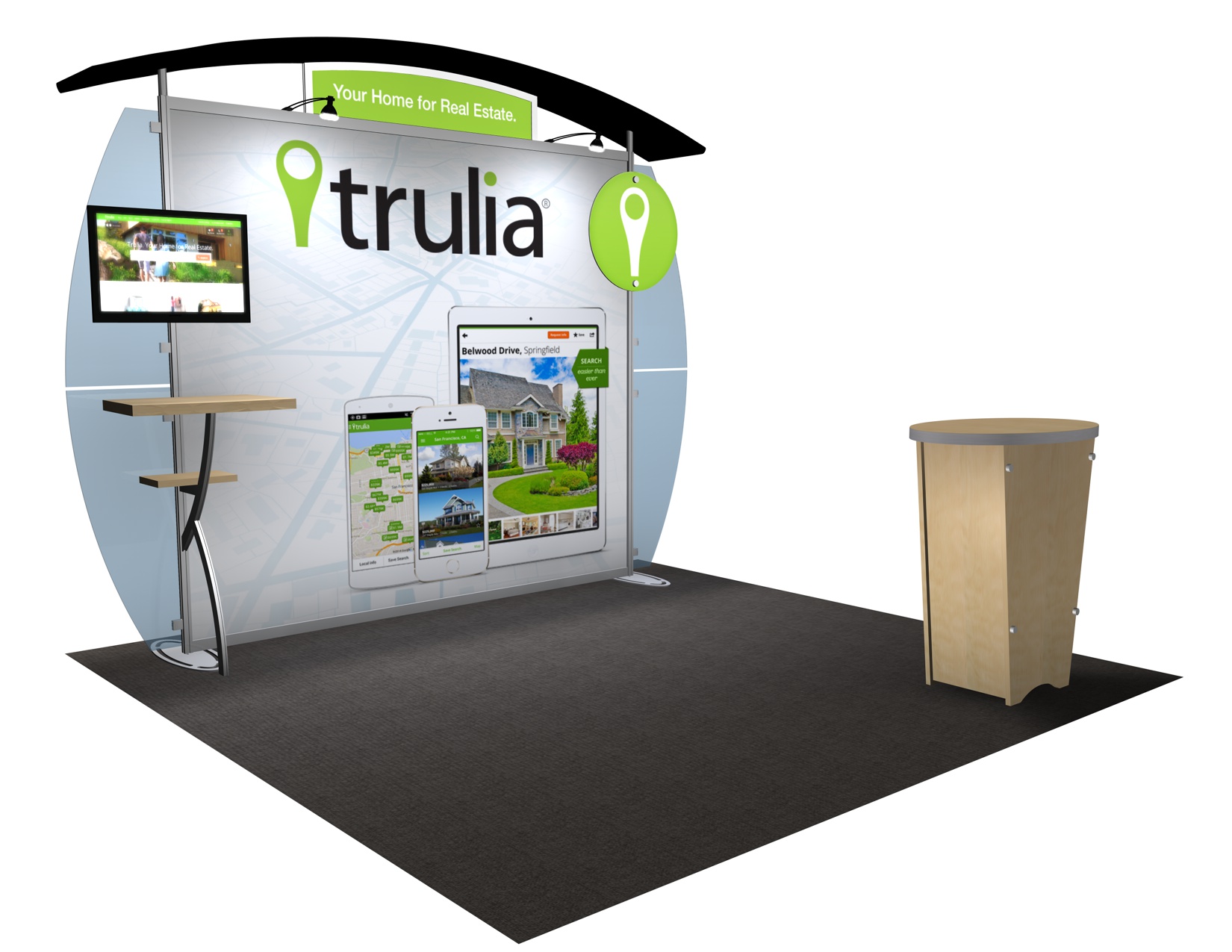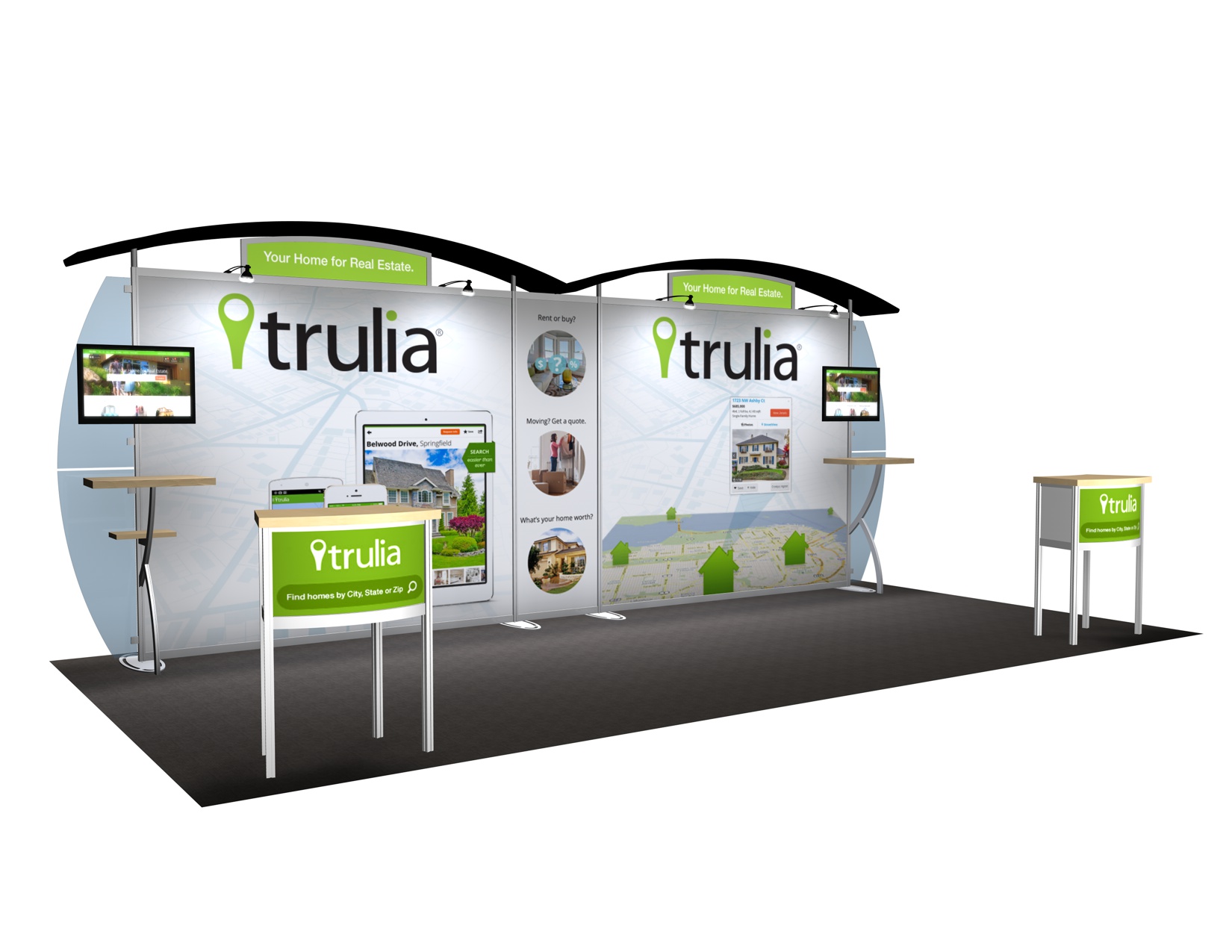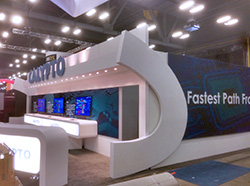Display Search / Trade Show and Event Tips / Getting Started /
What You Should Know as an Exhibit Buyer
 Tips for an Exhibit Buyer
Tips for an Exhibit Buyer
- Don’t let the exhibit buying experience intimidate you
- Your marketing objectives and strategy should dictate your exhibit marketing needs
- Be prepared for sticker shock. Exhibits can be expensive
- Where to buy depends on your goals. Do you need a large custom exhibit? Or do you need a portable, modular, or hybrid exhibit?
- Plan ahead. You’ll save money and make smarter decisions
How to Get Started
For the sake of simplicity, let’s assume that exhibit marketing is a new experience. Exhibit marketing is certainly not rocket science. You don’t need a marketing degree to be successful at exhibit marketing. However, it helps to get advice so you make the right decisions.
Buying your first exhibit can, at first, raise more questions than answers. There are different types of exhibits and different types of exhibiting. The best fit will depend on how you plan to use the exhibit, the image you want to project, and the budget you have to work with.
Chances are you’ll purchase your exhibit from a local exhibit company. Exhibit companies have been around for decades and understand exhibits and trade shows. Originally, exhibits were custom-crafted. Then exhibit systems evolved as an alternative to the high cost of custom craftsmanship. Now, there are multiple exhibit categories. Exhibit systems, which includes portable, modular, and hybrid exhibits, are evolving towards custom-crafted exhibits, and custom-crafted exhibits are evolving towards exhibit systems. Both have distinct advantages and exhibit companies work hard to carve out distinct niches along the custom to portable spectrum. The exhibit (or exhibits) that best fits your company’s exhibit marketing strategy will slot in somewhere along this spectrum. This is where an exhibit consultant can be very useful. Ultimately, an exhibit consultant wants to help you maximize your exhibit marketing potential.
Sticker Shock
Be prepared for sticker shock. Many first time buyers are shocked by the price of even a 10 ft. portable exhibit. Exhibit manufacturing is a low volume, highly specialized operation.
On average, a leading portable will cost between $20 to $150 per-square-foot (psf), a leading modular between $50 up to $300 psf, and a custom from a leading custom house between $100 and $300 psf. The more customized the exhibit system, the closer the price will be to a custom exhibit.
 Where to Buy
Where to Buy
If you plan to exhibit more than once or twice, chances are you’ll work closely with an experienced exhibit consultant for several years. Shop around and base your decision on more than just price. Exhibit consultants have years of experience about design, marketing, graphics, and trade show tactics. Their knowledge will help you avoid the pitfalls that most inexperienced trade show marketers make. And, there are lots and lots of expensive pitfalls. Working with a knowledgeable trade show consultant will save you money over time.
Most exhibit consultants or distributors work with exhibit system manufacturers. Some distributors are exclusive to a system manufacturer, but most carry multiple exhibit systems. These distributors range from sales-only operations to complex operations that provide value-added services such as design, graphics, rental, and storage. Generally the manufacturer supplies the distributor with exhibit system literature and assists the distributor with design support.
Custom fabricated exhibits are sold direct since custom fabrication houses design and manufacture the exhibit. Storage and graphic production are fairly common with custom exhibit fabrication houses. However, some offer a range of other value-added services such as logistics (i.e., managing the booth to and from the exhibit hall as well as orchestrating the installation and dismantling and other services while at the exhibit facility).
There are other avenues for purchasing exhibits. Some graphics companies have added exhibit sales to their product offering. Some office supply catalogs have included very basic exhibits as well. Usually exhibits from these sources are portable systems in standard "kit" configurations.
Most distributors have websites. Many allow you to order exhibits on their website with a credit card. Design and consultation are traditionally free. Lead times for portable/modular/hybrid systems range from a few days to a few weeks, but rarely exceed five weeks unless the project is large and/or complex. Custom exhibit lead times range depending on the complexity of the exhibit, the time of year, and other jobs already in-house.
Plan Ahead
Planning ahead will save you stress and possibly money. Most importantly, planning ahead will help you avoid making hasty decisions. Some exhibit companies offer a discount for long lead times. This allows them to use their staff and resources efficiently, especially during the main selling season. Planning ahead also provides time to correct errors and make last minute refinements (which are not uncommon regardless of your careful planning).
Define an Exhibit Marketing Strategy
 Your exhibit marketing strategy should include your purpose, goals, and final objective. Draft this before you are influenced by budget parameters. Your exhibit strategy should be consistent with your general marketing strategy. Creating an exhibit marketing strategy may reveal what type of exhibit or exhibits are best suited for your company. If your company plans to attend numerous shows back-to-back using a 10 x 10 space, you may want to evaluate portable or modular exhibits. If your company does a number of smaller inline booths along with a few major shows, then you’ll want to consider portable/modular or hybrid exhibits. When the strategy is to make a huge impact at a major industry show, you’ll want to evaluate modular, hybrid, and custom exhibits.
Your exhibit marketing strategy should include your purpose, goals, and final objective. Draft this before you are influenced by budget parameters. Your exhibit strategy should be consistent with your general marketing strategy. Creating an exhibit marketing strategy may reveal what type of exhibit or exhibits are best suited for your company. If your company plans to attend numerous shows back-to-back using a 10 x 10 space, you may want to evaluate portable or modular exhibits. If your company does a number of smaller inline booths along with a few major shows, then you’ll want to consider portable/modular or hybrid exhibits. When the strategy is to make a huge impact at a major industry show, you’ll want to evaluate modular, hybrid, and custom exhibits.
Put it in Writing
Once you’ve determined the exhibit, accessory, or service, request a quote from a professional exhibit consultant. In the case of an exhibit, you might work through several designs modifications and quotes until the exhibit suits you perfectly. This process is generally free. When you’re ready to buy, insist that everything is in writing. Never depend on a conversation. Most sellers know this and will provide you with a detailed written quote.
Contact Us
For more information about trade show or event marketing, give us a call or Contact Us. We welcome the opportunity to assist you with your next event.
Mel White
Classic Exhibits Inc.